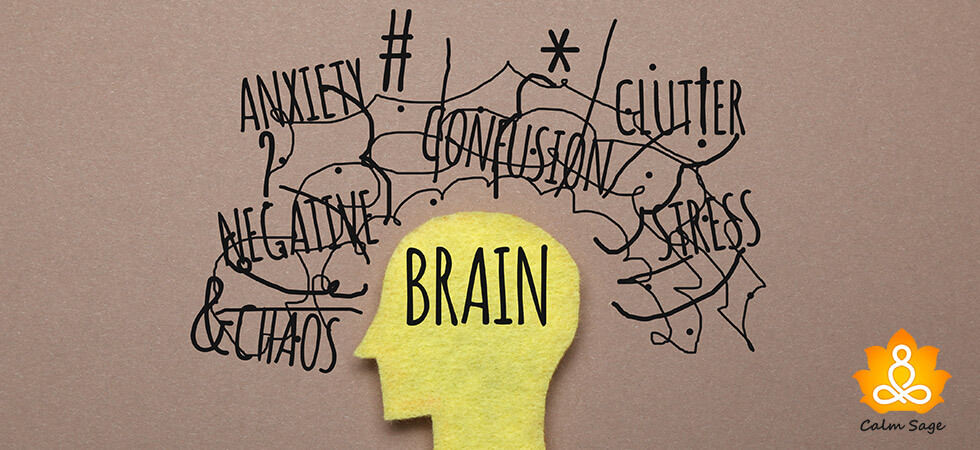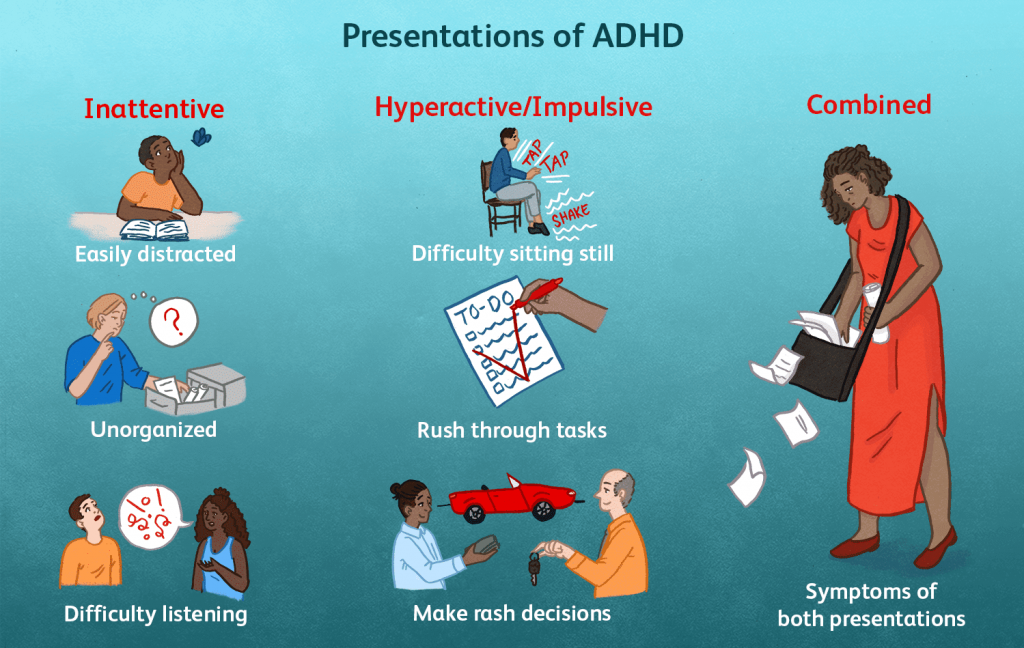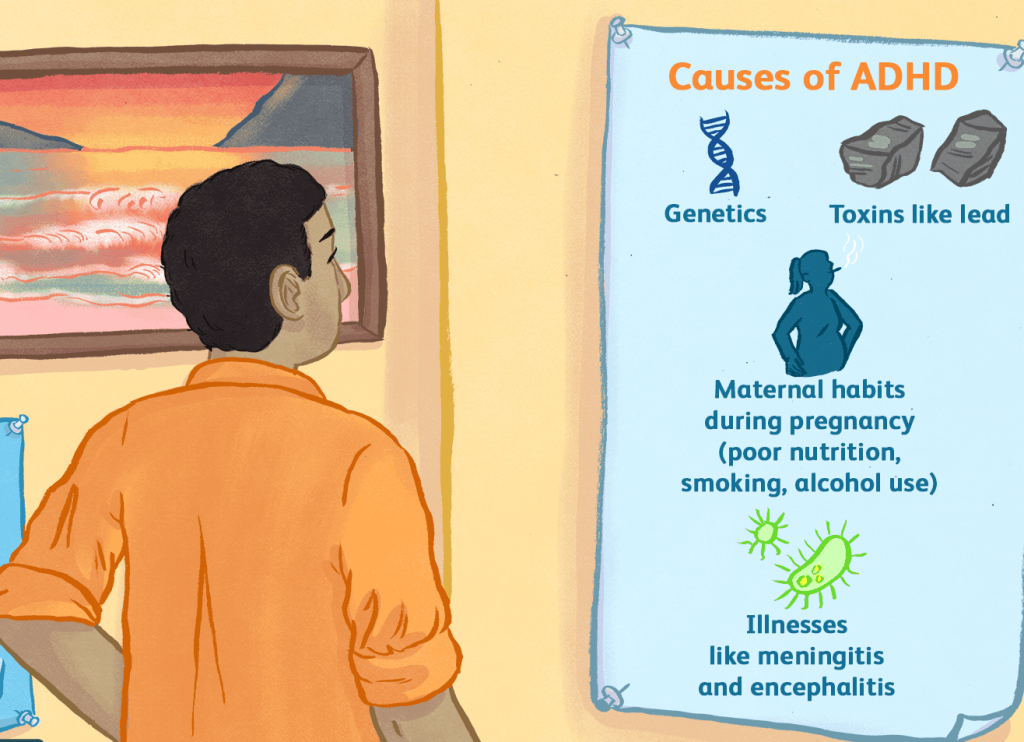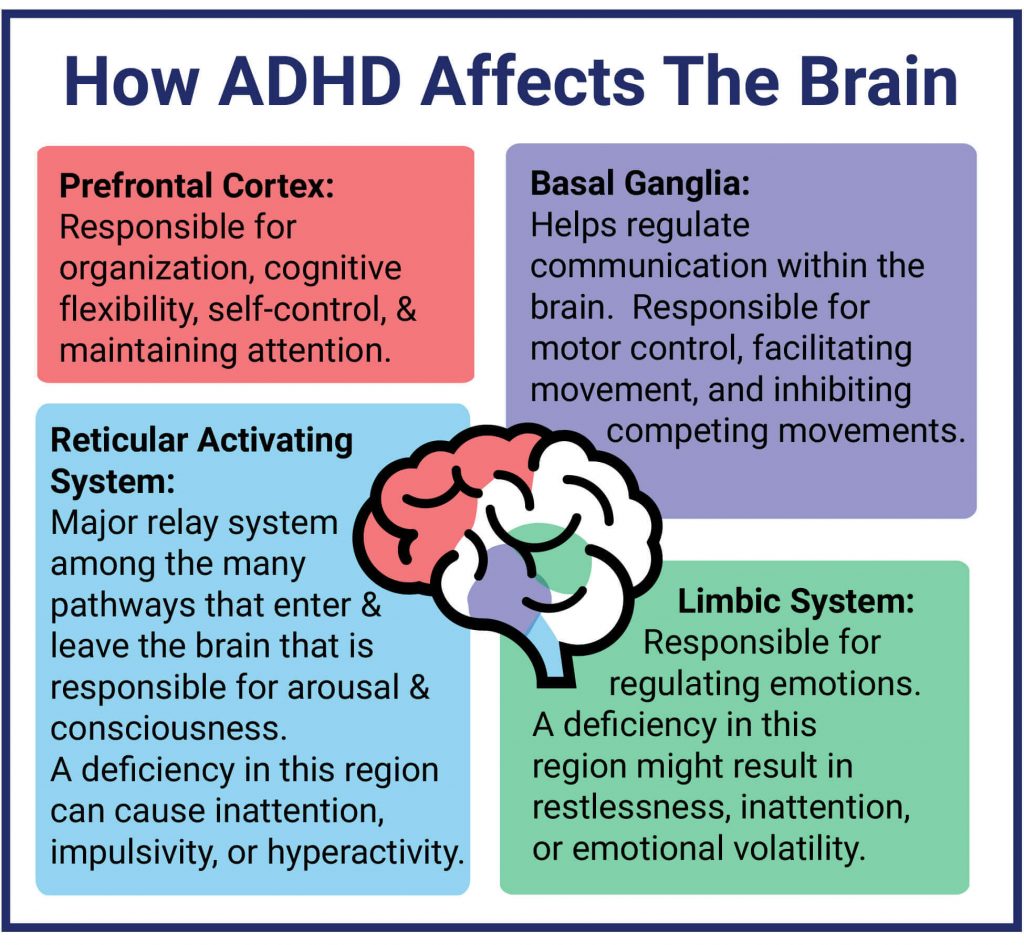What is Attention Deficit Hyperactivity Disorder (ADHD)?

Attention-Deficit\Hyperactivity Disorder (ADHD) is a neurological condition that may affect the life span if not treated properly. Researches show that the symptoms of ADHD change with time. As in, suppose if childhood hyperactivity was increased then adulthood might get decreased due to learned coping strategies. Due to changing symptoms in a lifetime, ADHD can also become part of life during adulthood as well.
ADHD can affect work, health, finances, and relationships. Due to changing symptoms, half of the children are left undiagnosed. Due to scatterbrain and laziness, ADHD comes into the picture in adulthood. Therefore, it is really important to treat ADHD in childhood properly. To appropriately treat ADHD in an early stage, it is really important to learn the causes and symptoms of ADHD. In this blog, I have covered what is ADHD, symptoms, and causes of ADHD, living with ADHD, and treatment options of ADHD. So, let’s get started.

Symptoms of ADHD
ADHD in childhood can impact social, behavioral, and academic problems. Symptoms of ADHD in childhood can vary from difficulty in solving tasks, taking more time to achieve tasks, or experiencing difficulty in sitting for long hours (school).
Meanwhile, symptoms of ADHD in adulthood can vary to a boring personality, taking more time to achieve tasks, and difficulty in listening to the conversation.
Even if ADHD is recognized in early-stage, symptoms might get changed with time and coping strategies. People may confuse the two, behaving impulsively or easily distracted with a normal personality issue. Therefore, learning the difference between the symptoms and cause is really important to recognize early-stage ADHD in childhood.
Furthermore, people with ADHD are always judged due to their always distracted personality. Therefore, if you ever meet a personality who is always distracted and behaves impulsively, do not judge them, instead, try to support them.
Causes of ADHD

From the above studies, we have concluded that ADHD is linked with neurological and genetic components. Meanwhile, researches show that there is no guarantee that ADHD will be passed in the next generation as well.
Furthermore, the risk factors related to ADHD are exposure to lead. Lead causes illnesses such as meningitis. High lead exposure may alleviate the symptoms of ADHD. Moreover, poor nutrition and high substance usage during pregnancy may also develop ADHD in the newly born infant.
What it feels like Living with ADHD?

ADHD in childhood and adulthood varies and can affect emotions as well. The person may become highly anxious sometimes due to the constant stress. Sometimes, coping with ADHD also becomes an emotional roller coaster. ADHD cannot be cured, after some time the person may learn to cope and manage the symptoms.
Furthermore, it is really important to manage all the symptoms and keep the track of symptoms to get the right help and track the progress. It is not important to publicize the problem if you are diagnosed with ADHD until and unless you feel comfortable with the problem. Additionally, get support and help from the people who really understand you.
Treatment of ADHD:
Medication is not the only way to treat ADHD. Managing and learning to cope with the symptoms is the best way to keep the ADHD in control
Below mentioned are the commonly used and effective ways of treating ADHD without medications.
1. Therapy
A therapy known to be effective and best for treating ADHD is Cognitive Behavioral Therapy (CBT). CBT helps the person to alter the unproductive thoughts into positivity which in turn improves brain functioning.
2. Lifestyle Changes
Learning to cope with the symptoms during class and workplace are the lifestyle changes that can be implemented to cope with the symptoms of ADHD. Furthermore, you can also prepare a checklist so that the brain is not distracted from work and studies.
3. Self-help Techniques
Self-help techniques like anger and stress management can be implemented. To improve the focus, the person can try yoga or meditation.
I hope this article helps you to learn the basics of ADHD. For more such informational content, follow Calm Sage on all social media platforms.
Thanks for reading!
More Interesting Reads:
How To Stop Procrastination (& Get The Work Actually Done)
Debunking These Common Myths About ADHD Is An Absolute Urgency!
Signs Of Attention Deficit Hyperactivity Disorder (ADHD) In Children & Treatment




















